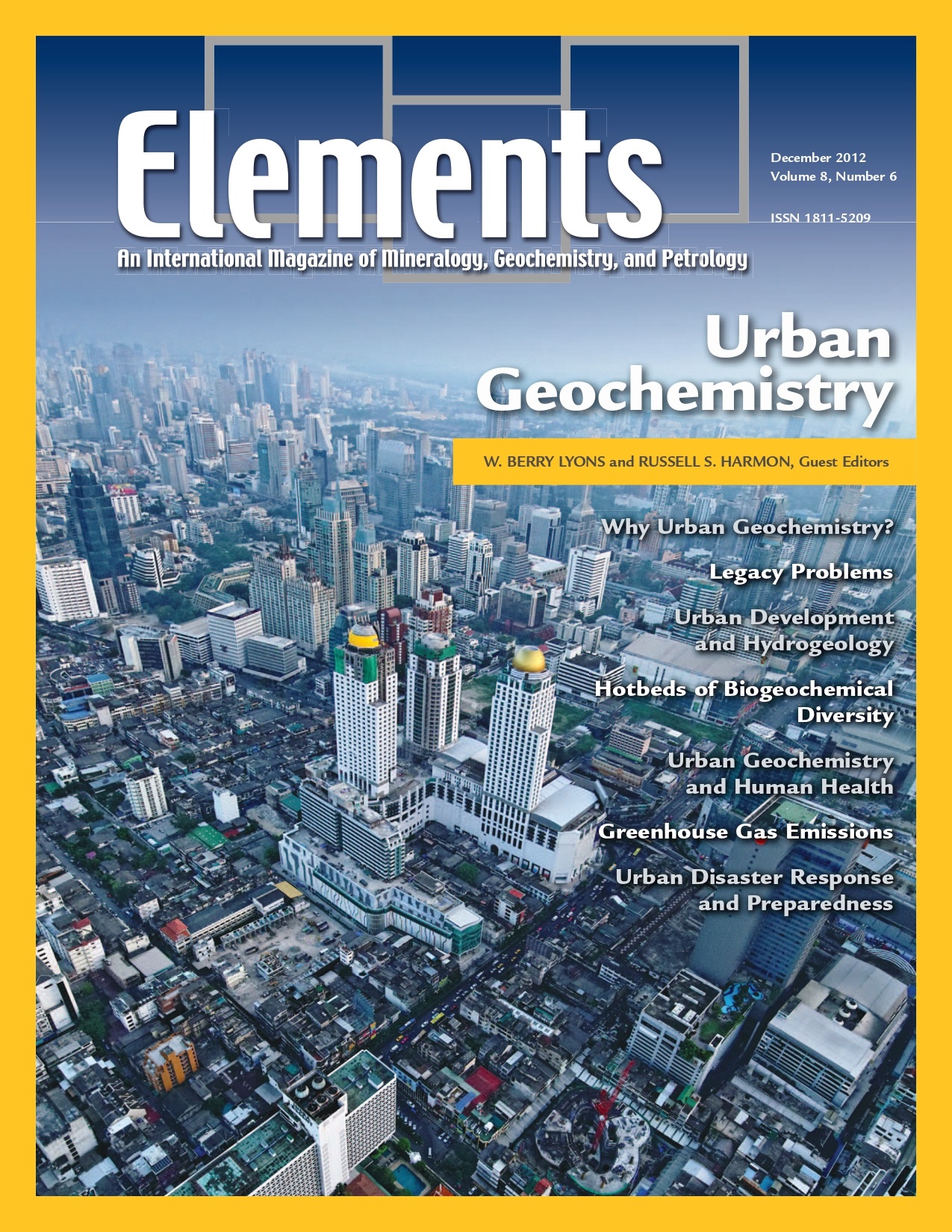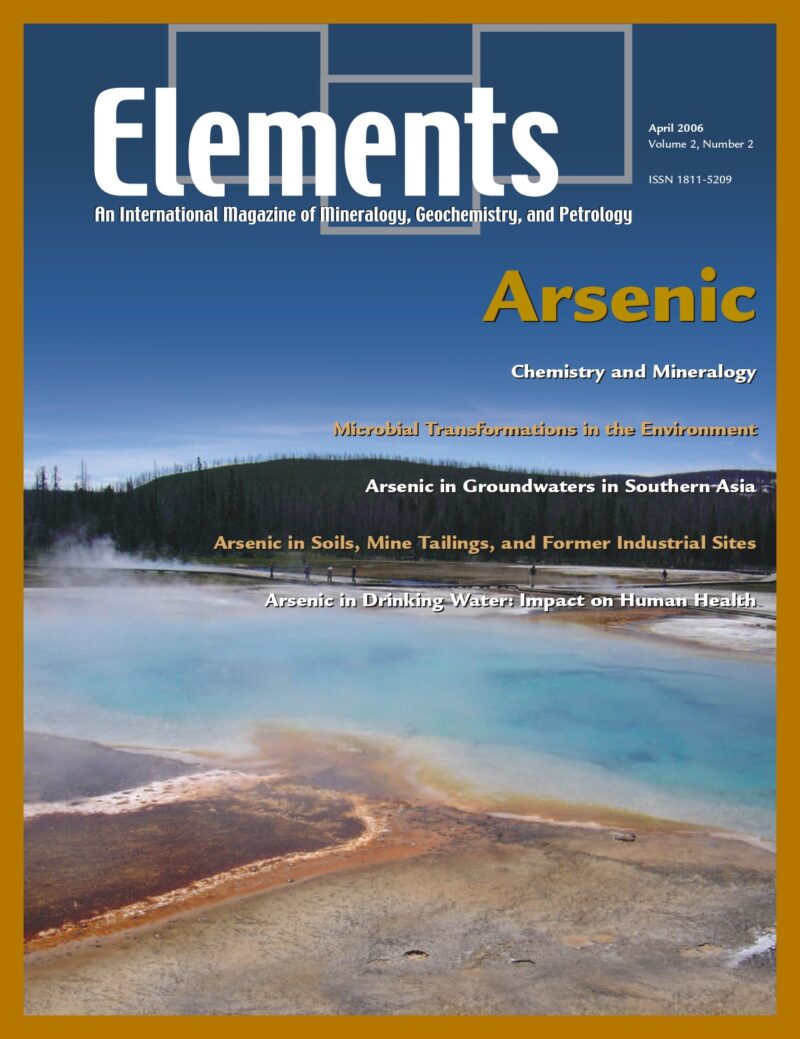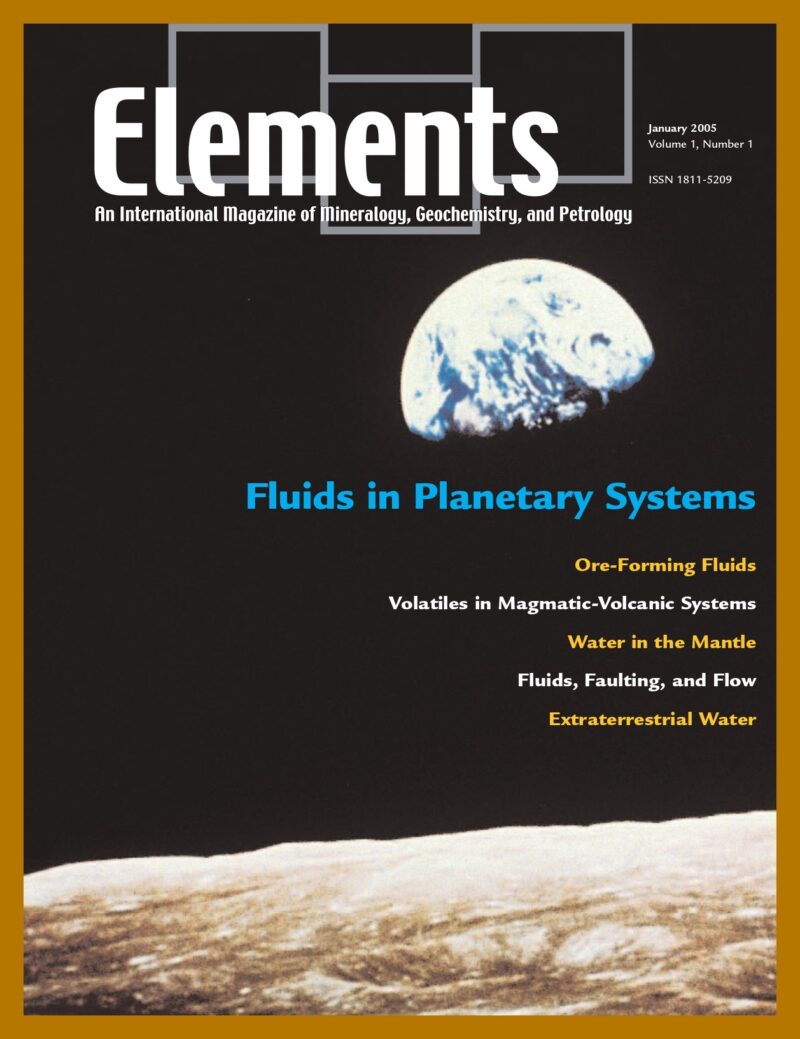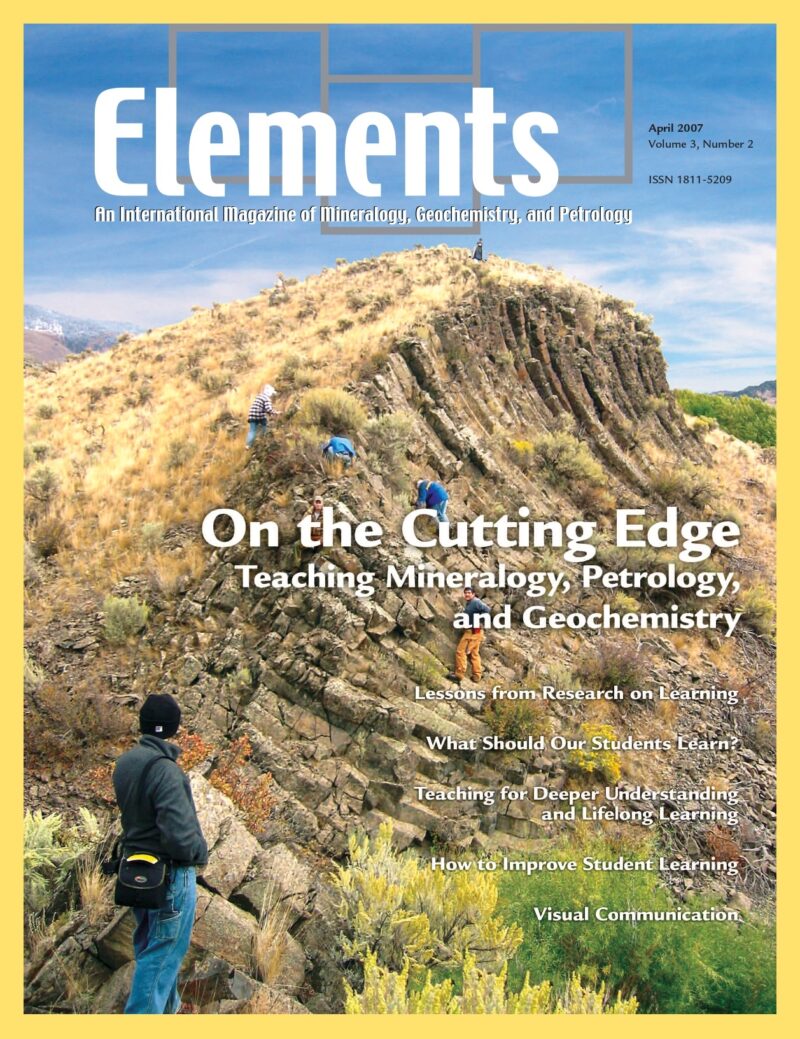
Granitic Pegmatites, August 2012, Vol. 8, No. 4
June 28, 2024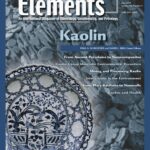
Kaolin, June 2014, Vol. 10, No. 3
June 28, 2024Urban Geochemistry, December 2012, Vol. 8, No. 6
$20.00
By 2030, about 60% of the human population will live in cities. Clearly, anthropogenic activities in urban environments affect geochemical cycles, water resources, and the health of ecosystems and humans globally.
Urban Geochemistry
December 2012, Vol. 8, No. 6
By 2030, about 60% of the human population will live in cities. Clearly, anthropogenic activities in urban environments affect geochemical cycles, water resources, and the health of ecosystems and humans globally. Past practices are still having biogeochemical impacts today, and in many cases remediation is needed. Both natural and manmade disasters greatly change the geochemistry of urban areas. Understanding past impacts can aid in future disaster planning. An increased awareness of the geochemical and mineralogical effects of urbanization on geochemical cycling will aid urban planners in the effort to make urban development sustainable.
Why You’ll Love Elements Magazine:
- Expert Contributors: Articles written by renowned researchers in the field of geoscience.
- Engaging Content: Join a community of readers who are passionate about Elements.
- Exceptional Quality: Each issue is printed on high-quality paper with stunning visuals and detailed illustrations that bring complex scientific concepts to life.
Order your copy of the December 2012 issue of Elements magazine today and explore urban geochemistry.
Related products
-
Arsenic, April 2006, Vol. 2, No. 2
$20.00Arsenic is an element known throughout history as a classic poison. Currently, very small but highly significant concentrations of this element in drinking water supplies are causing massive health problems to many millions of people in some of the world’s poorest nations, and more localised sources related to mining and processing are also a concern.
-
Fluids in Planetary Systems, January 2005, Vol. 1, No. 1
$20.00Water and other geofluids play an important role in the geochemical and rheological evolution of the Earth and other bodies in the solar system. These fluids are responsible for the formation of hydrothermal mineral deposits, affect eruption behavior in volcanic systems and the geophysical properties of the mantle, and significantly affect the way in which rocks deform and fracture.
-
On The Cutting Edge: Teaching Mineralogy, Petrology, And Geochemistry, April 2007, Vol. 3, No. 2
$20.00New advances in research on learning have important implications for teaching mineralogy, petrology, and geochemistry. Effective instructional practices are increasingly student centered, address diverse student learning styles, and employ a variety of active-learning strategies.

